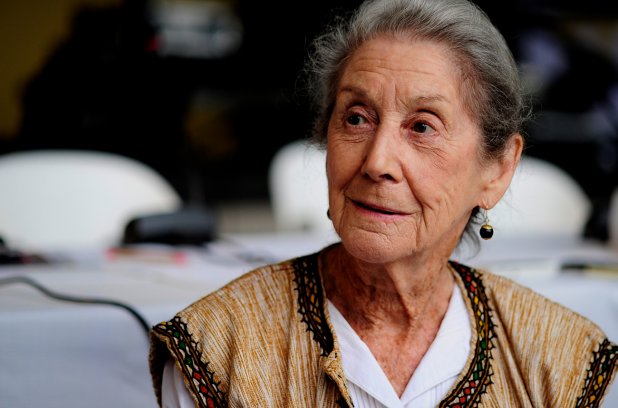Let the truth be told
 Writer, activist and Nobel Prize literature prize winner Nadine Gordimer warns that new legislation will return South Africa to apartheid-era limits on free speech
Writer, activist and Nobel Prize literature prize winner Nadine Gordimer warns that new legislation will return South Africa to apartheid-era limits on free speech
(more…)
 Writer, activist and Nobel Prize literature prize winner Nadine Gordimer warns that new legislation will return South Africa to apartheid-era limits on free speech
Writer, activist and Nobel Prize literature prize winner Nadine Gordimer warns that new legislation will return South Africa to apartheid-era limits on free speech
(more…)
 To celebrate Index’s 40th birthday, our publisher SAGE is opening the archive to the public for 40 days from 26 March. It’s a unique literary heritage, a roll-call of the greatest authors in the 20th century canon standing up for free expression.
To celebrate Index’s 40th birthday, our publisher SAGE is opening the archive to the public for 40 days from 26 March. It’s a unique literary heritage, a roll-call of the greatest authors in the 20th century canon standing up for free expression.
In 1994, South African writer, activist and Nobel Prize winner Nadine Gordimer witnessed the end of apartheid in South Africa when the black population voted for the first time.
Nadine Gordimer will be speaking at the Southbank Centre on 14 March in the first of a series of events celebrating Index’s anniversary. Get tickets here.
Date: 14 March
Time: 7:30pm
Venue: Queen Elizabeth Hall, Southbank Centre, Belvedere Road, London, SE1 8XX
Tickets: £15, £12 – book here
In the first of a series of events between Index on Censorship and the Southbank Centre, South African novelist Nadine Gordimer will be speaking at the centre’s Literature and Spoken Word Festival on 14 March.
The 88-year-old writer, renowned for her activism, won the Nobel Prize for Literature in 1991. She published her first novel in 1953, and has since gone on to publish short stories, plays and criticism in over 40 books, including The Conservationist, which won the Booker Prize in 1974. Gordimer’s latest novel, published to coincide with the event, is No Time Like the Present.
The festival will run from January to March. Tickets can be booked online here.
 The controversial Protection of State Information Bill reveals a an authoritarian streak that has always been present in the ANC, says Salil Tripathi
The controversial Protection of State Information Bill reveals a an authoritarian streak that has always been present in the ANC, says Salil Tripathi
(more…)